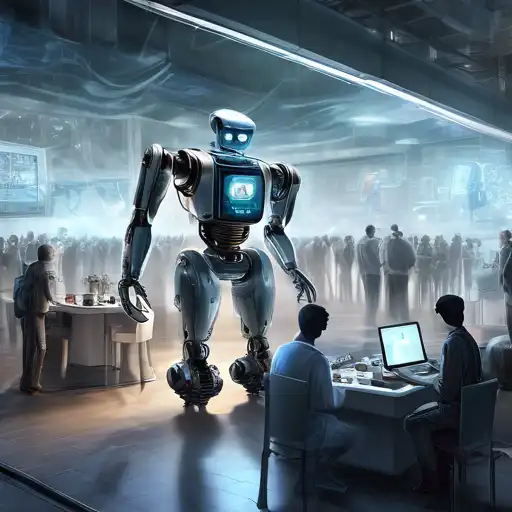The Evolution of Robotics in Modern Society
In the past few decades, robotics has evolved from a futuristic concept to an integral part of our daily lives. From manufacturing floors to our living rooms, robots are now performing tasks that were once considered impossible. This transformation is not just changing how we work but also how we live, offering unprecedented convenience and efficiency.
Robotics in the Home
One of the most visible impacts of robotics is in the home. Robotic vacuum cleaners, like the popular Roomba, have made cleaning floors a hands-off task. Similarly, robotic lawn mowers and window cleaners are becoming increasingly common, freeing up time for homeowners to enjoy other activities.
Robotics in Healthcare
The healthcare sector has seen significant advancements thanks to robotics. Surgical robots, such as the da Vinci Surgical System, allow for precision operations with minimal invasiveness. Rehabilitation robots are helping patients recover from injuries faster, showcasing the potential of robotics in improving quality of life.
Robotics in Education and Research
Robotics is also making waves in education and research. Educational robots are being used to teach students about programming and engineering, fostering a new generation of innovators. In research, robots are exploring environments that are too dangerous or inaccessible for humans, from deep-sea trenches to outer space.
The Future of Robotics
As technology continues to advance, the role of robotics in everyday life is set to grow exponentially. With the integration of artificial intelligence, robots are becoming more autonomous and capable of performing complex tasks. This promises to further revolutionize industries and daily activities, making the future of robotics an exciting prospect.
For those interested in exploring more about how technology is shaping our world, check out our article on The Impact of AI on Society.
Challenges and Considerations
Despite the benefits, the rise of robotics also presents challenges. Issues such as job displacement, privacy concerns, and the ethical use of autonomous robots are topics of ongoing debate. It's crucial for society to address these challenges to ensure that the advancement of robotics benefits everyone.
In conclusion, the rise of robotics in everyday life is a testament to human ingenuity and the relentless pursuit of innovation. As we continue to explore the possibilities, it's clear that robotics will play a pivotal role in shaping the future of our society.
